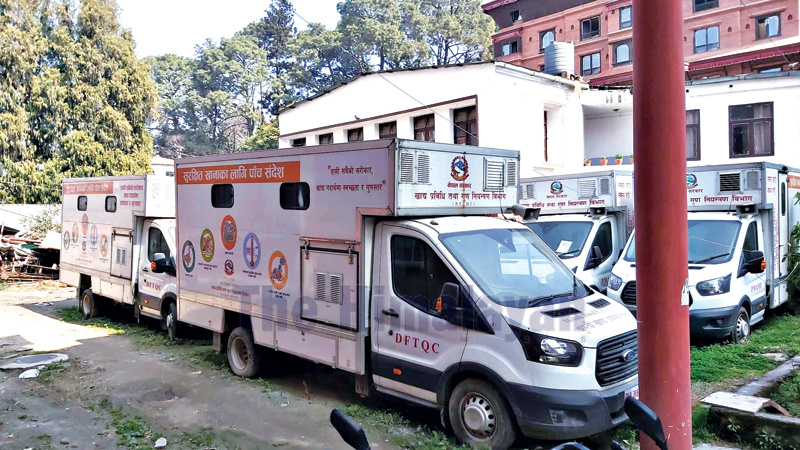Mobile lab van gathering dust for seven months
Kathmandu, January 31
The four mobile laboratory vans brought by the Department of Food Technology and Quality Control (DoFTQC) is gathering dust at its office at the moment.
Operations of the mobile lab van have been halted after the Commission for the Investigation of Abuse of Authority (CIAA) filed a corruption related case against former director general of the department, Sanjeev Kumar Karna, on June 21 last year.
Karna has been accused of misusing Rs 240 million while procuring the vans.
Since the time Karna was charged by the CIAA, all the four mobile lab vans have remained idle at DoFTQC, said Sachit Kumar Waiba, information officer of DoFTQC.
“If the lab equipment in the vans are not utilised for a long time, there is a danger that the equipment may get damaged,” he said. “Hence, we need to start using the vans as soon as possible and moreover the government’s investment is going to waste.”
Meanwhile, Waiba mentioned that if the court or the Ministry of Agriculture and Livestock Development (MoALD) gave the department a written directive to operate the vans, they would have surely done so.
“Since the case is ongoing at the court, it would be inappropriate for us to directly approach the authorities and seek such permission as it would be tantamount to meddling in the case,” he stated.
“But I feel there is nothing wrong if we were allowed to operate the vans.”
The European Union had handed over the mobile lab vans to the department on the occasion of the Fifth National Food Safety Day in 2013. With the help of these vans, the department can test food items on the spot and immediately get results on whether the food is edible or not. The mobile vans are also expected to speed up the department’s works related to inspection and testing of food.
Though the vans were received by the department in 2013, they were being used only occasionally and it was only since March 24 last year that the vans were being used on a daily basis. “The mobile lab vans had made our work easier since we were able to get the test results immediately,”
Waiba said. “Moreover, traders had also become more aware and cautious about what they were selling to their customers.”
He further said that most of the time the traders themselves were not aware regarding food quality. In such cases, on-the-spot tests were helping them be aware of such issues.






